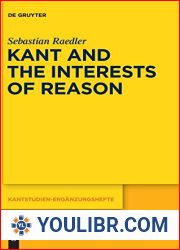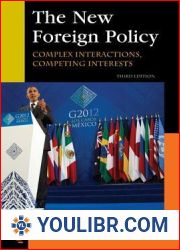
BOOKS - Moral Sentiments and Material Interests: The Foundations of Cooperation in Ec...

Moral Sentiments and Material Interests: The Foundations of Cooperation in Economic Life (Economic Learning and Social Evolution)
Author: Herbert Gintis
Year: July 1, 2005
Format: PDF
File size: PDF 2.9 MB
Language: English

Year: July 1, 2005
Format: PDF
File size: PDF 2.9 MB
Language: English

The book 'Moral Sentiments and Material Interests' offers a groundbreaking perspective on the origins of cooperation, challenging the conventional view of self-interest as the driving force behind human behavior. Instead, the authors propose that cooperation arises from a combination of moral sentiments and material interests, providing a more nuanced understanding of human cooperation and its potential for promoting the well-being of society. This comprehensive synthesis draws on research across multiple disciplines, including economics, anthropology, evolutionary biology, human biology, social psychology, and sociology, to explore the theoretical foundations and practical implications of this idea. The book begins by examining the traditional view of self-interest as the primary driver of human behavior, highlighting its limitations and the need for a more inclusive approach. It then presents the concept of strong reciprocity, where individuals prioritize the well-being of others based on shared values and mutual benefits, rather than purely out of self-interest. This concept is explored through experiments such as the Ultimatum Game, which illustrates how cooperation can thrive when individuals prioritize the needs of others over their own self-interest.
Книга «Моральные чувства и материальные интересы» предлагает новаторский взгляд на истоки сотрудничества, бросая вызов общепринятому представлению о корысти как движущей силе человеческого поведения. Вместо этого авторы предлагают, чтобы сотрудничество возникало из сочетания моральных настроений и материальных интересов, обеспечивая более тонкое понимание человеческого сотрудничества и его потенциала для содействия благополучию общества. Этот всеобъемлющий синтез опирается на исследования по нескольким дисциплинам, включая экономику, антропологию, эволюционную биологию, биологию человека, социальную психологию и социологию, для изучения теоретических основ и практических последствий этой идеи. Книга начинается с изучения традиционного взгляда на корысть как на первичную движущую силу человеческого поведения, подчёркивая её ограничения и необходимость более инклюзивного подхода. Затем он представляет концепцию сильной взаимности, где люди отдают приоритет благополучию других, основываясь на общих ценностях и взаимных выгодах, а не просто из корысти. Эта концепция исследуется с помощью таких экспериментов, как Ultimatum Game, которая иллюстрирует, как сотрудничество может процветать, когда люди отдают приоритет потребностям других, а не собственным интересам.
livre « Sentiments moraux et intérêts matériels » offre une vision novatrice des origines de la coopération, remettant en question l'idée généralement acceptée de l'intérêt personnel comme moteur du comportement humain. Au lieu de cela, les auteurs suggèrent que la coopération découle d'une combinaison de sentiments moraux et d'intérêts matériels, permettant une meilleure compréhension de la coopération humaine et de son potentiel pour contribuer au bien-être de la société. Cette synthèse complète s'appuie sur la recherche dans plusieurs disciplines, y compris l'économie, l'anthropologie, la biologie évolutionnaire, la biologie humaine, la psychologie sociale et la sociologie, pour étudier les fondements théoriques et les conséquences pratiques de cette idée. livre commence par une étude de la vision traditionnelle de l'intérêt personnel en tant que moteur principal du comportement humain, soulignant ses limites et la nécessité d'une approche plus inclusive. Ensuite, il présente le concept d'une forte réciprocité, où les gens donnent la priorité au bien-être des autres, en se fondant sur des valeurs communes et des avantages mutuels, plutôt que simplement par intérêt personnel. Ce concept est exploré par des expériences comme Ultimatum Game, qui illustre comment la collaboration peut prospérer lorsque les gens donnent la priorité aux besoins des autres plutôt qu'à leurs propres intérêts.
libro «Sentimientos morales e intereses materiales» ofrece una visión innovadora de los orígenes de la cooperación, desafiando la concepción generalmente aceptada del interés propio como fuerza impulsora del comportamiento humano. En cambio, los autores proponen que la cooperación surja de una combinación de sentimientos morales e intereses materiales, proporcionando una comprensión más sutil de la cooperación humana y su potencial para promover el bienestar de la sociedad. Esta síntesis integral se basa en la investigación en varias disciplinas, incluyendo economía, antropología, biología evolutiva, biología humana, psicología social y sociología, para estudiar las bases teóricas y las implicaciones prácticas de esta idea. libro comienza con un estudio de la visión tradicional del interés propio como motor primario del comportamiento humano, enfatizando sus limitaciones y la necesidad de un enfoque más inclusivo. Luego presenta el concepto de reciprocidad fuerte, donde las personas dan prioridad al bienestar de los demás, basado en valores compartidos y beneficios mutuos, y no simplemente por interés propio. Este concepto se explora a través de experimentos como Ultimatum Game, que ilustra cómo la colaboración puede prosperar cuando la gente da prioridad a las necesidades de los demás y no a sus propios intereses.
O livro «Sentimentos morais e interesses materiais» oferece uma visão inovadora das origens da cooperação, desafiando a visão convencional da conivência como o motor do comportamento humano. Em vez disso, os autores sugerem que a cooperação se dê a partir de uma combinação de sentimentos morais e interesses materiais, garantindo uma compreensão mais sutil da cooperação humana e do seu potencial para promover o bem-estar da sociedade. Esta síntese abrangente é baseada em várias disciplinas, incluindo economia, antropologia, biologia evolucionária, biologia humana, psicologia social e sociologia, para estudar os fundamentos teóricos e os efeitos práticos da ideia. O livro começa por explorar a visão tradicional do osso como o motor primário do comportamento humano, ressaltando suas limitações e a necessidade de uma abordagem mais inclusiva. Depois apresenta o conceito de reciprocidade forte, onde as pessoas priorizam o bem-estar dos outros, baseando-se em valores comuns e benefícios recíprocos, e não apenas na conivência. Este conceito é explorado através de experiências como o Ultimatum Game, que ilustra como a cooperação pode prosperar quando as pessoas priorizam as necessidades dos outros em vez de seus próprios interesses.
Il libro «Sentimenti morali e interessi materiali» offre una visione innovativa delle origini della collaborazione, sfidando la visione universale della corruttela come motore del comportamento umano. Gli autori suggeriscono invece che la collaborazione derivi da una combinazione di sentimenti morali e interessi materiali, garantendo una maggiore comprensione della cooperazione umana e del suo potenziale per promuovere il benessere della società. Questa sintesi completa si basa su studi su diverse discipline, tra cui economia, antropologia, biologia evoluzionaria, biologia umana, psicologia sociale e sociologia, per studiare le basi teoriche e gli effetti pratici di questa idea. Il libro inizia studiando la visione tradizionale dell'osso come motore primario del comportamento umano, sottolineando i suoi limiti e la necessità di un approccio più inclusivo. Poi rappresenta il concetto di una forte reciprocità, dove le persone danno la priorità al benessere degli altri, basandosi su valori comuni e benefici reciproci, non solo per la comprensione. Questo concetto viene esplorato attraverso esperimenti come Ultimatum Game, che illustra come la collaborazione può prosperare quando le persone danno la priorità alle esigenze degli altri piuttosto che ai propri interessi.
Das Buch „Moralische Gefühle und materielle Interessen“ bietet einen innovativen Blick auf die Ursprünge der Zusammenarbeit und stellt die allgemein akzeptierte Vorstellung von Eigeninteresse als treibender Kraft menschlichen Verhaltens in Frage. Stattdessen schlagen die Autoren vor, dass Zusammenarbeit aus einer Kombination von moralischen Einstellungen und materiellen Interessen entsteht und ein differenzierteres Verständnis der menschlichen Zusammenarbeit und ihres Potenzials zur Förderung des Wohlbefindens der Gesellschaft ermöglicht. Diese umfassende Synthese stützt sich auf Forschung in verschiedenen Disziplinen, einschließlich Ökonomie, Anthropologie, Evolutionsbiologie, Humanbiologie, Sozialpsychologie und Soziologie, um die theoretischen Grundlagen und praktischen Implikationen dieser Idee zu untersuchen. Das Buch beginnt mit der Untersuchung der traditionellen cht des Eigeninteresses als primäre treibende Kraft des menschlichen Verhaltens und betont seine Grenzen und die Notwendigkeit eines integrativeren Ansatzes. Dann präsentiert er das Konzept einer starken Gegenseitigkeit, bei der die Menschen das Wohlergehen anderer auf der Grundlage gemeinsamer Werte und gegenseitiger Vorteile und nicht nur aus Eigeninteresse priorisieren. Dieses Konzept wird durch Experimente wie Ultimatum Game untersucht, die veranschaulichen, wie Zusammenarbeit gedeihen kann, wenn Menschen die Bedürfnisse anderer über ihre eigenen Interessen stellen.
''
"Moral Feelings and Material Interests" (Ahlaki Duygular ve Maddi Çıkarlar) kitabı, insan davranışının arkasındaki itici güç olarak geleneksel kişisel çıkar kavramına meydan okuyarak, işbirliğinin kökenlerine yenilikçi bir bakış sunuyor. Bunun yerine, yazarlar işbirliğinin ahlaki duyguların ve maddi çıkarların bir kombinasyonundan kaynaklandığını, insan işbirliğinin ve toplumun refahını geliştirme potansiyelinin daha ayrıntılı bir şekilde anlaşılmasını sağladığını öne sürüyorlar. Bu kapsamlı sentez, bu fikrin teorik temellerini ve pratik etkilerini araştırmak için ekonomi, antropoloji, evrimsel biyoloji, insan biyolojisi, sosyal psikoloji ve sosyoloji gibi çeşitli disiplinlerde yapılan araştırmalara dayanmaktadır. Kitap, insan davranışının temel itici gücü olarak geleneksel kişisel çıkar görüşünün incelenmesiyle başlar, sınırlamalarını ve daha kapsayıcı bir yaklaşıma duyulan ihtiyacı vurgular. Daha sonra, insanların sadece kendi çıkarları yerine ortak değerlere ve karşılıklı faydalara dayanarak başkalarının refahına öncelik verdikleri güçlü karşılıklılık kavramını sunar. Kavram, Ultimatum Game gibi deneylerle araştırılıyor; bu, insanlar başkalarının ihtiyaçlarını kendi çıkarlarına göre önceliklendirdiğinde işbirliğinin nasıl gelişebileceğini gösteriyor.
يقدم كتاب «المشاعر الأخلاقية والمصالح المادية» نظرة مبتكرة على أصول التعاون، متحديًا الفكرة التقليدية للمصلحة الذاتية باعتبارها القوة الدافعة وراء السلوك البشري. بدلاً من ذلك، يقترح المؤلفون أن التعاون ينشأ من مزيج من المشاعر الأخلاقية والمصالح المادية، مما يوفر فهمًا أكثر دقة للتعاون البشري وإمكاناته لتعزيز رفاهية المجتمع. يعتمد هذا التوليف الشامل على الأبحاث في العديد من التخصصات، بما في ذلك الاقتصاد وعلم الإنسان وعلم الأحياء التطوري وعلم الأحياء البشري وعلم النفس الاجتماعي وعلم الاجتماع، لاستكشاف الأسس النظرية والآثار العملية لهذه الفكرة. يبدأ الكتاب بدراسة النظرة التقليدية للمصلحة الذاتية باعتبارها القوة الدافعة الأساسية للسلوك البشري، مع التأكيد على حدوده والحاجة إلى نهج أكثر شمولاً. ثم يعرض مفهوم المعاملة بالمثل القوية، حيث يعطي الناس الأولوية لرفاهية الآخرين بناءً على القيم المشتركة والمنافع المتبادلة بدلاً من مجرد المصلحة الذاتية. يتم استكشاف هذا المفهوم من خلال تجارب مثل Ultimatum Game، والتي توضح كيف يمكن للتعاون أن يزدهر عندما يعطي الناس الأولوية لاحتياجات الآخرين على المصلحة الذاتية.

















































